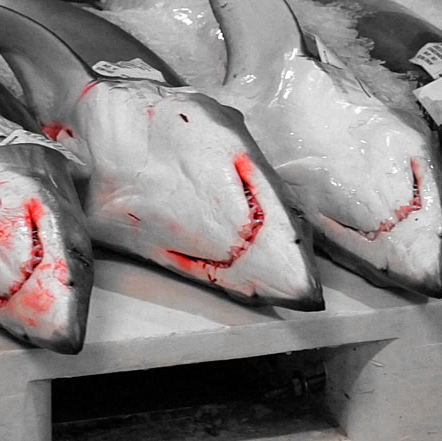Smart shark plans can be sustainable
 Experts say shark fishing should be made sustainable, not banned.
Experts say shark fishing should be made sustainable, not banned.
“There are two main reasons why bans on shark fishing don't work,” says Colin Simpfendorfer from James Cook University in Australia.
“First, most are caught incidentally in fisheries for other species, and many die during capture and handling. Second, many communities depend heavily on sharks and rays as a source of animal protein, so banning fishing may eliminate their only affordable source.”
But sharks (including rays and chimeras) are in trouble, facing possibly the largest crisis of their 420 million year history.
As the researchers note, “tens of millions of sharks are caught and traded internationally each year, many populations are overfished to the point where global catch peaked in 2003, and a quarter of species have an elevated risk of extinction”.
So they set up a study to find sustainable ways of obtaining sharks.
Researchers assessed data on 65 worldwide populations of sharks and their relatives including rays and chimeras.
They found that 39 of those populations (representing 33 species) met the criteria for biological sustainability.
The sustainably fished sharks accounted for about 9 percent of the current global catch - more than 200,000 tons in live weight.
This shows that sustainable shark fishing is not only possible, it is already happening.
The researchers offer five recommendations to help in achieving sustainable shark fisheries:
1. Species with the lowest biological productivity must be protected
2. Precautionary science-based catch limits should be implemented by international management organisations for the high-seas sharks
3. International treaties can help to support sustainable international fisheries and trade
4. Developed countries should offer assistance to developing countries to support the transition to sustainable shark fishing
5. Fisheries should implement mechanisms that trace shark products to their source, allowing consumers to choose products fished sustainably
“At present the notion of sustainable shark fins is unthinkable to many,” the researchers write.
“Yet, today's sustainable (but not necessarily managed) shark fisheries yield ~4,406 tons of dried fins.”
Of course, consumers have no way of knowing today whether products they buy were fished sustainably or not.
Achieving sustainable hark fishing will not be easy, as there are 1,200 shark species, and the challenges will be different in each country where they are found.
“We need to redouble species-level data collection and increase status assessment of the most heavily fished populations so that we know how and when sustainability is achieved,” Simpfendorfer says.
“We can fish for sharks and avoid extinctions without banning fishing, but we urgently need improved assessment and management.”








 Print
Print